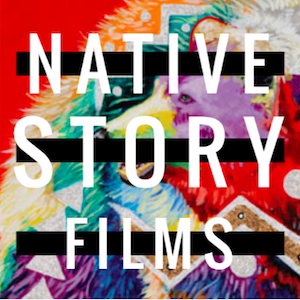Students Collaborate with California Tribes on Cultural Revival and Environmental Justice Projects
 Dr. Pfeiffer’s San José State University class Nature and World Cultures is a mind-broadening class that fulfills upper division requirements in the SJSU Core Studies and contributes to restoring endangered ecosystems and languages throughout California. Since 2012, students in this class have partnered alongside over twenty Native Californian tribes and tribal communities to complete semester-long projects resulting in outcomes that help conserve biological diversity, cultural diversity, or both: biocultural diversity.
Dr. Pfeiffer’s San José State University class Nature and World Cultures is a mind-broadening class that fulfills upper division requirements in the SJSU Core Studies and contributes to restoring endangered ecosystems and languages throughout California. Since 2012, students in this class have partnered alongside over twenty Native Californian tribes and tribal communities to complete semester-long projects resulting in outcomes that help conserve biological diversity, cultural diversity, or both: biocultural diversity.
Students form group of three to five people within the first week of class and reach out to tribal cultural representatives by the third week. By the end of the semester, projects have culminated in YouTube videos (microdocumentaries, animated stories, and biopics), Wikipedia entries, published online articles, illustrated books, and public events including film festivals. Students also can receive extra credit by attending tribal gatherings, public protests called by tribes, and policy hearings on environmental and cultural issues affecting California Natives.
Student group projects focus on contemporary issues including water rights, endangered languages, threatened species that are culturally significant, the need for protection of sacred sites and water rights, and traditional ways of living. Prior student work is available to view on YouTube, on two special class playlists – one for microdocumentaries (19 videos), another for animated stories told in Native Californian languages with English subtitles (12 films).
Two student groups have produced animated story books for the Kashia Pomo and Dry Creek Rancheria tribes, available for free within the Issuu digital publishing platform: the story of “The Water Dog and the Love Charm,” and the story of “The Skunk Brothers and the Elk Doctor.” With the awarding of a recent Dean’s Quick Grant from the College of Humanities and the Arts to Dr. Pfeiffer, the class can print copies of the books to gift to tribal members, the descendants of the original storytellers.
The projects, which are broken down into ten separate phases, are structured to enable students to dig deep and use critical thinking, communication, writing, reading, researching, planning, teamwork, and leadership skills.
“What I found really touching with the students was that at the end [of the microdocumentary project] when we were all done, it sort of triggered memories of their own family traditions and culture. If students really want to learn anything, they should relate it to their own culture somehow,” relates Corine Pearce, a Redwood Valley Pomo member and master basketweaver.
Overall, students agree the group projects is definitely a challenge, one that pushes them to deepen their understanding about the world. More importantly for students attending a California state university, gaining deeper familiarity with the First Nations who occupied and stewarded California’s lands and waters since time immemorial provides students with a new set of eyes to interpret the world around them.

